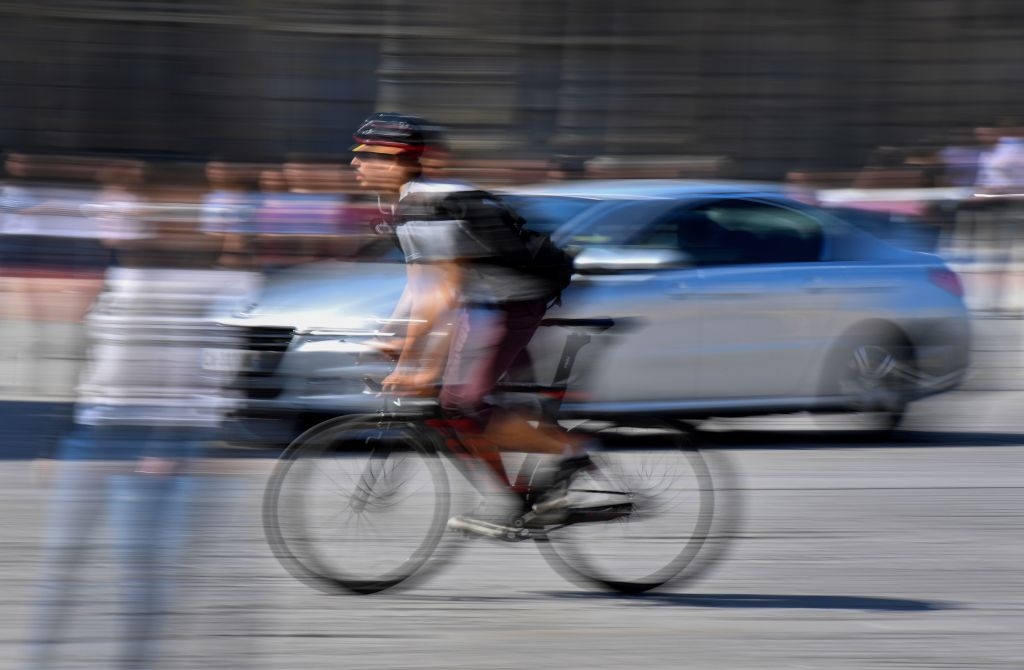'It's not meant to be illegal, that's just how it is': Alleycat racer speaks about the culture behind fixed city racing
The underground bike races have attracted attention this past week, so we spoke to someone who takes part


"You can't claim it's responsible riding, right?", acknowledges James*, an Alleycat racer who volunteered to speak to Cycling Weekly about the very much illegal bike racing discipline which grabbed headlines earlier this week.
Alleycat racing is a largely underground phenomenon, which grew out of cycle courier culture in the USA, particularly New York, but has now made it into the UK national press after last week’s Great Alleycat of London race.
The idea of Alleycat racing comes from bike messengering, and sees cyclists, mostly on fixed-gear bikes, attempting to be the fastest through checkpoints across a city, using whatever path they see fit.
This style of racing is absolutely illegal, and it isn’t in any way condoned by us at Cycling Weekly.
If you’re looking for the official wording, The Road Traffic Act of 1988 says: "A person who promotes or takes part in a race or trial of speed on a public way between cycles is guilty of an offence, unless the race or trial is authorised, and is conducted in accordance with any conditions imposed." Add onto that a disregard of traffic regulations, the Highway Code, and the riding of brakeless fixies, and the rap sheet adds up.
That doesn’t mean we’re not interested in the ‘why’ behind this phenomenon, and keen to understand the motivations behind the riders branded by the national press as “cyclist thugs” (Daily Telegraph) and “cycling menace(s)” (Daily Mail).
"Obviously, it's irresponsible," James*, an Alleycat racer, told Cycling Weekly. "A lot of them do ride fixed gears, running red lights, but that's kind of what bike messengering is.
The latest race content, interviews, features, reviews and expert buying guides, direct to your inbox!
"It's not meant to be illegal, that's just how it is. There are laws in place, if you wanted to stop it, you could stop it, stop the people riding brakeless.
"You could ban it tomorrow, and people probably still do it. You could erase it. And then in 20 years time, something like that will pop up again, except it would be different people. It's an inevitable thing, there's no point in getting rid of it."
London's race produced quite a media storm, with headlines such as ‘Cyclist thugs endanger public while racing around streets for cash’ (The Telegraph). The Daily Mail referred to "a close-call where a little boy was nearly hit by a man on a bike."
James* told us: "Those articles are just inevitable that you always have that backlash. They're obviously aimed at a specific demographic, who respond to 'thugs on bikes'."
According to James, there’s much more to the Alleycat culture than dangerous riding. Alleycat racers typically used fixed gear bikes, and often without the front brake which makes their use on the road legal, instead slowing down via applying backward pressure to the pedals, or perfecting 'the skid'.
The choice of bike comes from the origins of the discipline: bike messengers.
"The racing is the public surface to it," James continued. "Underneath that there's lots of culture, quite a bit of history. It wouldn't exist if it was sanctioned. They're races but not races and the skill is avoiding all people, the skill is in the riding."
"It's all evolved from bike messengering. It's on public roads, so that's what Alleycats are. You couldn't do it any other way," James says.
"It's almost just pure culture. It's an inevitable sport because people do that stuff for their jobs. The cultures evolved, and you're not going to escape that."
Taking part is not for the faint of heart, or the civic minded. We'd rather racing was kept within the confines of the law, but we're also not sure that a couple of Alleycats really deserve all the outrage the right-wing press can muster.
* Name has been changed to protect anonymity

Adam is Cycling Weekly’s news editor – his greatest love is road racing but as long as he is cycling, he's happy. Before joining CW in 2021 he spent two years writing for Procycling. He's usually out and about on the roads of Bristol and its surrounds.
Before cycling took over his professional life, he covered ecclesiastical matters at the world’s largest Anglican newspaper and politics at Business Insider. Don't ask how that is related to riding bikes.